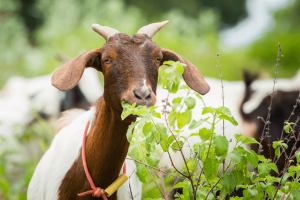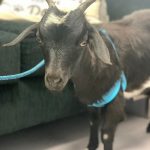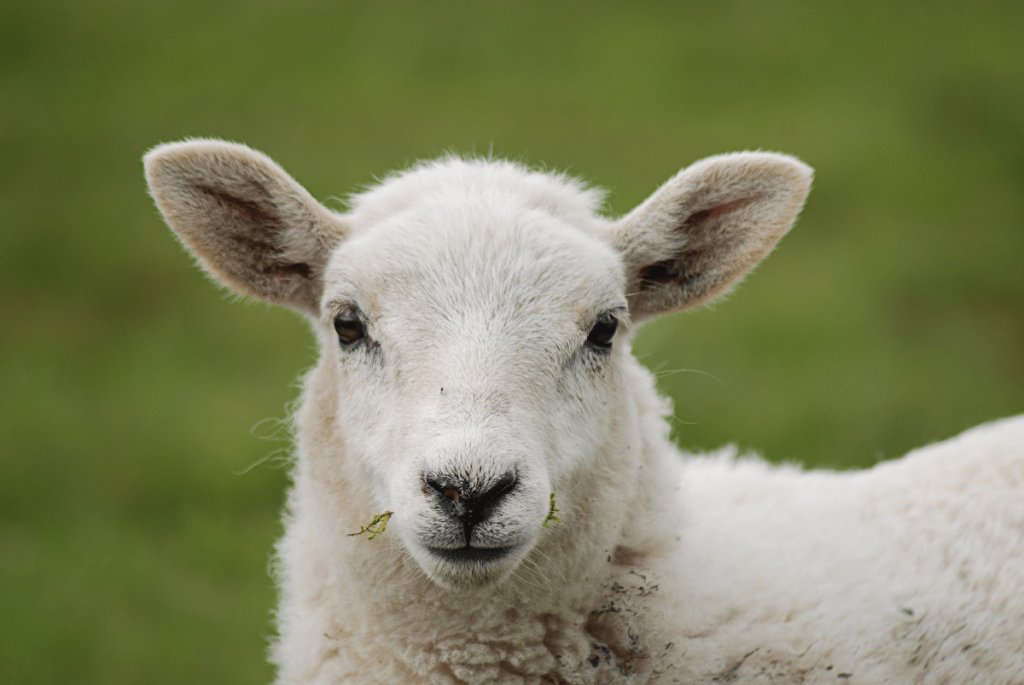Goats and sheep are becoming increasingly popular pets for those with a bit of acreage – and it is little wonder why. They are quite easy to care for, not as costly as larger livestock, and are readily trainable.
If you’re thinking about getting a sheep or a goat as a pet, read on to learn our top care tips.
You can’t just stop at one!
Sheep and goats aren’t designed to be solitary animals. They’re social animals and are used to being part of a herd or flock, so it’s important that you don’t just opt for a single animal.
When it comes to goats, you will need a minimum of two, and you should allow around a quarter of an acre per goat. It’s best to opt for two does, a doe and a wether (neutered male goat), or a doe and a buck if you’re planning on breeding them.
Sheep can get quite stressed if they’re not kept in a flock. You would need at least three sheep to keep them happy, however, you can keep up to 10 sheep on an acre of grass.
Food requirements
When it comes to food, goats are browsers and sheep are grazers. Goats are quite big eaters. They will eat plants, weeds, twigs and flowers – anything at their chin level – and then some grass.

You will need to supplement their diet with some hay, grain and vegetables – but keep in mind that they can actually be quite fussy eaters, and they don’t like to eat food that’s fallen on the ground.
Sheep on the other hand will spend up to 8 hours a day grazing on grass and clover. Depending on the size and quality of your pasture, you may also need to supplement the sheep’s feed with some hay. Limit the amount of grain you feed your sheep, however, as too much grain can cause sheep to bloat, which can turn fatal.
Both sheep and goats need access to salt to help with any mineral supplementation. You can purchase salt blocks or mineral salt that is specifically formulated for each type of animal. They will also need constant access to lots of fresh water as well.
Housing and fencing
Sheep and goats don’t need any type of fancy housing; however, they do need some form of shelter from the sun, rain and cold. A three-walled shelter works well. They will also need some straw bedding to keep them comfortable and warm during the colder months.
Fencing is another keep element of housing sheep or goats – to both keep them in and to protect them from any wild animals. Goats are notorious escape artists and can climb chain-link fences. A 1.5m tall fence is a good height for both animals – it will keep them in your pasture and keep predators out.
Preventative health care for your sheep or goat
While sheep and goats are pretty easy to look after, there are a few steps you need to take to keep them healthy. Just like any other pet, it’s a good idea to book in an annual health check with your vet. They can check your animal’s stools for any worms, check their hooves, assess their general health, and provide advice on their diet and any necessary supplements.
You will also need to maintain their hooves properly. Both goats and sheep need their hooves trimmed approximately every six weeks or so. This can be done by your vet, or you can learn to do this yourself to save some money.
Sheep also have the added requirement of being shorn at least once a year, unless you get a self-shedding breed, i.e. dorpers. You will also need to regularly perform crutching (trimming the wool around their crutch) and dagging (removing the dirty wool around their rear end) to avoid any sickness or other problems.
Potential illnesses
Sheep and goats are ruminant animals, and just like cows, have four stomach chambers. When something goes wrong with a goat’s ruminant, they can become bloated and sick. If left untreated, they will unfortunately die. If your sheep or goat displays any unusual behaviour for more than 24 hours, it’s important to seek veterinary care. It’s important that you address any sickness in your animals as quickly as possible to try and limit the spread to any other animals.
Personalised care for your sheep or goat

The Cameron Veterinary Services team looks after all animals – large and small – and offers a full range of veterinary services. Our vets can come to you to provide preventative care and advice, or to tend to sick animals. If you’re close to East Gawler, we also have a small animal vet clinic where we can see smaller ruminants such as goats and sheep, along with cats and dogs.
To make an appointment, give us a call on 08 8318 1801.



